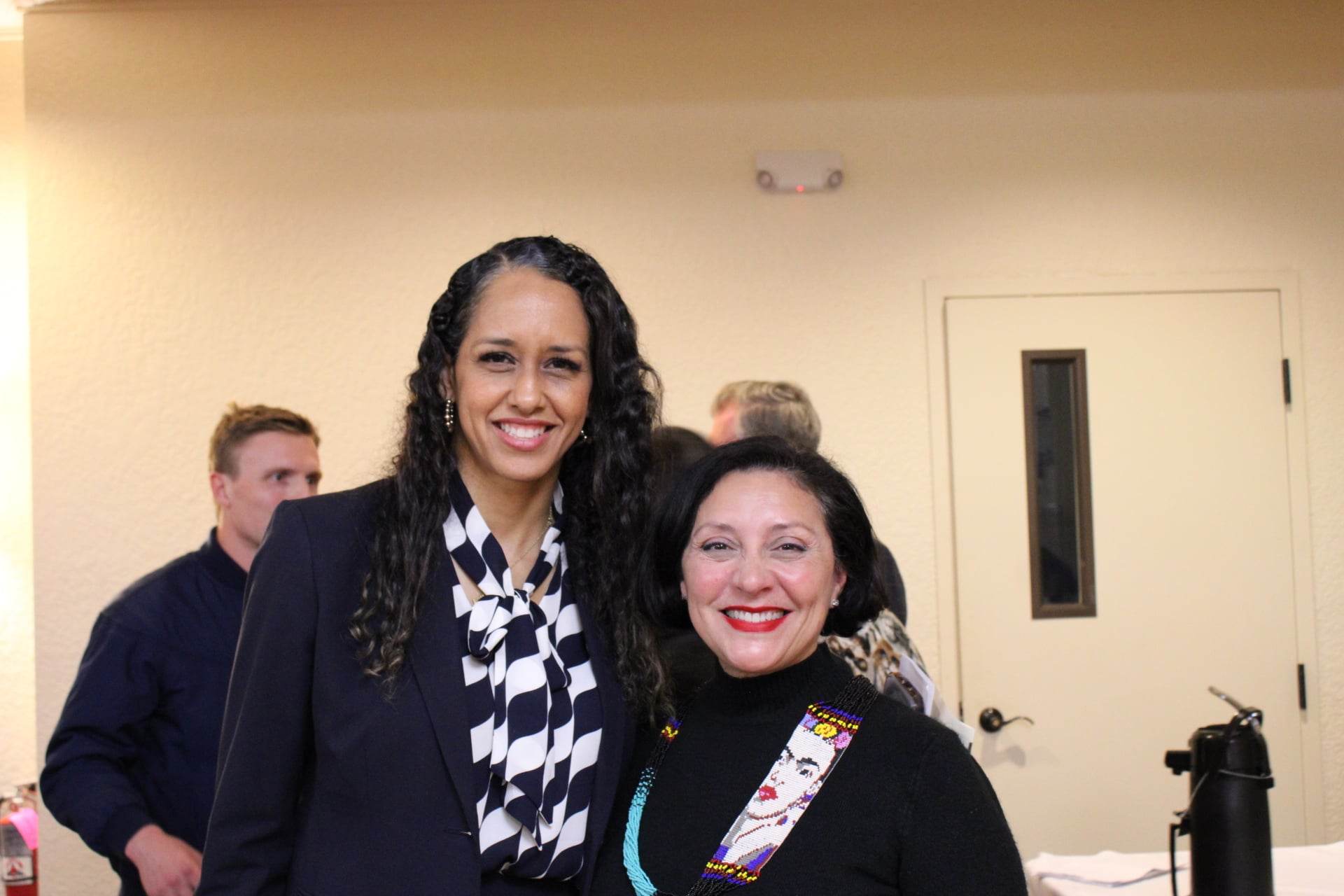🟧 96 Units On Ocean // Balboa Reservoir Project Update
In this week’s newsletter, we dig into plans for 96 units of housing on Ocean Avenue and more.
City officials held a public meeting to address concerns ranging from juveniles in the justice system to graffiti.

Law enforcement officials were front and center for a well-attended public meeting Wednesday at St. Brendan’s Church hall to address what must be the top issue in the city: public safety.
“We're having this town hall because the No. 1 issue that I've been hearing from the neighborhood surrounding this area is about public safety,” said District 7 Supervisor Myrna Melgar, whose office convened the meeting.
The supervisor was District Attorney Brooke Jenkins, San Francisco Police Department Chief Bill Scott, Assistant Chief David Lazar and Taraval Station Capt. Robert Yick.
“There's been an increase in crime, property crime,” Melgar said. “The pandemic brought about some changes.”
The dozens of attendees were invited to submit questions in writing. Many filled out question cards, but only six were addressed during the town hall because many dealt in the same topics.
Five people asked about the people living in vehicles around Stonestown Galleria, San Francisco State and Lake Merced.


“I have children here in the city,” one attendee said. “I don't feel safe with them walking around the mall. There's people yelling at our kids. There's aggression. It's a big problem.”
Melgar said the Department of Homelessness and Supportive Housing began assisting people living in vehicles along Winston Drive transition into permanent housing about three months ago.
Soon, the city will be able to enforce four-hour parking in that same area, she added.
“Most of the folks in those vehicles are actually not San Francisco State students, as we pointed out,” Melgar said. “They’re families with kids. There's a lot of families who have kids in our public schools.”
Melgar shared that the Municipal Transportation Agency is starting the Lake Merced Quick-Build project that will add bike lanes, improve crosswalks along with other mobility enhancing changes. She predicts this project will start by the end of this summer.
“Something is being done, you just don’t see it yet,” she said. “I do have the commitment from the MTA to start enforcement on all of that stuff, but it's taking us a little while to transition people to where they should be.”
Other questions involved consequences for graffiti offenders, incentives for the police and DA’s handling of a case involving a former San Francisco official who was severely assaulted but also accused of assaulting a number of homeless people around his Marina District home.
A question about the city’s plans to rehabilitate kids who commit crimes was answered by Jenkins.
“We have a job to do if people commit crime, but for kids, in particular, we have got to figure out how we create hope in our children,” Jenkins said. “So many kids around this city are struggling with that aspect of things.”
Jenkins said many kids who commit crimes have nothing to lose. She said city leaders have to not only think about consequences but also be equipped with more ways to prevent kids from entering the criminal justice system such as developing an intervention program and investing in youth.

“We are in the process of revising a lot of our juvenile policies and our general orders and part of that is being more active with diversion,” Scott said. “What we are trying to do is get in front of it because what the statistics tell us is that once people start getting in the criminal justice system, for some people it never ends.”
A few ways the police department has begun to combat this is by using a $6 million grant for violence interruption and intervention to get people the proper services they need like a life coach and by having public safety meetings with the youth and their families.
Though the meeting only had time for a handful of questions, each speaker stayed after to answer any additional concerns.
“I know that we are a city that wants balance,” Jenkins said. “It wants to strike the balance between how do we make sure that our streets are safe and that our property is safe and that we have our personal well-being again but that we make sure that we're thoughtful in the way that we impose consequences.”
This story you’ve just finished was funded by our readers. We want it to inspire you to either sign up to become a member, give a gift membership or make a gift contribution to The Ingleside Light so that we can continue publishing stories like this one that matter to our community and city.
The Ingleside Light is a reader-funded news publication that produces independent journalism to benefit the community. We were founded in 2008 to fill a void in San Francisco’s press: An outlet dedicated to the people of the greater Ingleside neighborhood. More than a decade later, The Ingleside Light is still here doing the work because it is critical to democracy and our civic life.
Your contribution today will help ensure that our critical work continues. From development to small business, to parks and transportation and much more, we are busier than ever covering stories you won’t see anywhere else. Make your gift of any amount today and join the hundreds of readers just like you standing up for the power of independent news. Thank you.
We deliver neighborhood news, events and more every Thursday.